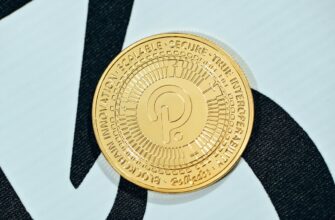- Understanding Cryptocurrency Regulation Under Indonesia’s OJK
- What is OJK and Its Role in Cryptocurrency?
- Indonesia’s Cryptocurrency Regulatory Timeline
- Key OJK Regulations Impacting Crypto Investors
- How to Safely Invest in Crypto Under OJK Oversight
- The Future of Cryptocurrency Regulation in Indonesia
- Frequently Asked Questions
- Is cryptocurrency legal in Indonesia under OJK?
- How do I check if a crypto exchange is OJK-approved?
- What cryptocurrencies are approved by OJK?
- Does OJK provide investor protection for crypto losses?
- When will OJK fully regulate all crypto activities?
- Can foreigners invest in Indonesian crypto markets?
Understanding Cryptocurrency Regulation Under Indonesia’s OJK
As cryptocurrency adoption surges in Indonesia, the role of Otoritas Jasa Keuangan (OJK) becomes increasingly crucial. Indonesia’s Financial Services Authority oversees the nation’s rapidly evolving crypto landscape, balancing innovation with investor protection. With over 17 million crypto investors recorded in 2023, OJK’s regulatory framework aims to create a secure environment while fostering technological advancement. This comprehensive guide explores how OJK regulates cryptocurrency markets and what it means for traders, exchanges, and Indonesia’s digital economy.
What is OJK and Its Role in Cryptocurrency?
OJK (Otoritas Jasa Keuangan) is Indonesia’s independent financial regulatory body established in 2011. While initially focused on traditional banking and capital markets, OJK expanded its oversight to include cryptocurrency following its designation as the primary crypto regulator in January 2023. Key responsibilities include:
- Licensing and supervising crypto asset exchanges
- Establishing investor protection mechanisms
- Developing anti-money laundering (AML) protocols
- Monitoring market stability risks
- Approving tradable crypto assets
Indonesia’s Cryptocurrency Regulatory Timeline
OJK’s regulatory approach has evolved through distinct phases:
- 2018-2019: Bappebti (under Ministry of Trade) initiated regulation, classifying crypto as commodities
- 2022: Government announced OJK would assume regulatory control by 2025
- January 2023: OJK officially became primary crypto regulator ahead of schedule
- 2024: Implementation of stricter KYC requirements and exchange licensing
Key OJK Regulations Impacting Crypto Investors
Recent OJK cryptocurrency regulations introduce critical safeguards:
- Exchange Licensing: Mandatory registration for all trading platforms
- Asset Whitelisting: Only OJK-approved cryptocurrencies can be traded
- Investor Verification: Tiered KYC requirements based on transaction volume
- Segregated Accounts: Mandatory separation of customer and exchange funds
- Risk Disclosures: Exchanges must provide clear investment warnings
How to Safely Invest in Crypto Under OJK Oversight
Follow these steps to ensure compliant cryptocurrency participation:
- Verify exchange registration status on OJK’s official website
- Complete full KYC verification before trading
- Check the OJK whitelist for approved cryptocurrencies
- Enable two-factor authentication on exchange accounts
- Review transaction fee structures before executing trades
- Report suspicious activities through OJK’s whistleblower portal
The Future of Cryptocurrency Regulation in Indonesia
OJK is developing comprehensive frameworks for emerging crypto sectors:
- DeFi Regulation: Draft rules for decentralized finance platforms
- CBDC Integration: Exploring digital rupiah interoperability
- Tax Compliance: Coordinating with DJP for crypto tax enforcement
- Green Mining Standards: Environmental guidelines for crypto operations
Frequently Asked Questions
Is cryptocurrency legal in Indonesia under OJK?
Yes, cryptocurrency is legal when traded through OJK-registered exchanges using approved assets. OJK regulates crypto as commodities rather than legal tender.
How do I check if a crypto exchange is OJK-approved?
Visit OJK’s official website and navigate to the “List of Registered Crypto Asset Traders” section. Approved platforms include Tokocrypto, Indodax, and Pintu.
What cryptocurrencies are approved by OJK?
OJK maintains a whitelist of approved assets including Bitcoin (BTC), Ethereum (ETH), Ripple (XRP), and 501 other cryptocurrencies as of 2024. The list is regularly updated on their portal.
Does OJK provide investor protection for crypto losses?
OJK mandates exchange security measures but doesn’t guarantee against market losses. Their Investor Protection Fund covers losses only from exchange bankruptcy or proven malpractice.
When will OJK fully regulate all crypto activities?
OJK aims to implement comprehensive regulations covering DeFi, NFTs, and staking by Q1 2025. Current oversight focuses primarily on centralized exchanges.
Can foreigners invest in Indonesian crypto markets?
Foreign investors can trade through OJK-registered exchanges but must complete enhanced KYC procedures and use Indonesian bank accounts for transactions.








